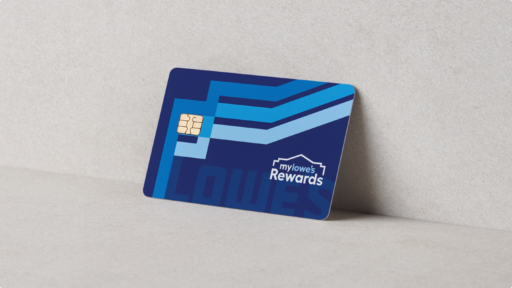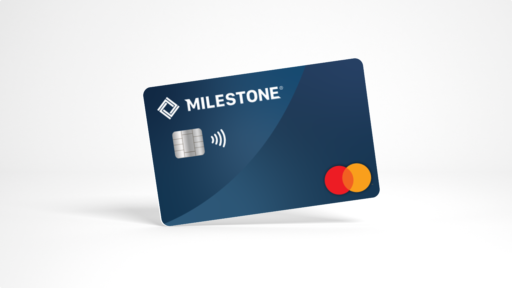Starting your credit journey can feel overwhelming, especially as a beginner—unsure of where to start. You might be wondering, “what’s the best way to start building credit?” or “Do I really need a credit card?” The truth is, credit is crucial to do just about anything these days, and using a credit card responsibly is one of the best and easiest ways to build a solid credit score. The key to success is choosing the right one.
In this guide, we’ll break down everything you need to know about credit cards for beginners, including what to look for, how to use your card to build credit, and some of the best credit cards for beginners with no credit. Whether you’re a student, just starting your financial journey, or someone looking to build their credit from scratch, this article is for you!
Table of Contents
The Importance of Building Credit
First things first—why does building credit matter? Your credit score affects many aspects of your life, from buying a car to renting an apartment or even landing a job in some cases. A higher score often means better interest rates, higher credit limits, and more financial opportunities. But don’t worry if you don’t have any credit history yet; this is something you can build with time and responsible credit card usage.
What Should You Look For in a Credit Card as a Beginner?
When choosing your beginner credit card, it’s important to consider a few factors that will help you get started on the right foot. Let’s dive into the key things to look for:
Secured vs. Unsecured Cards
- Secured cards are a great starting point. You’ll need to deposit an amount upfront (often $200 or more), which acts as your credit limit. This deposit reduces risk for the lender, and if you make your payments on time, you can gradually increase your credit limit and eventually graduate to an unsecured card.
- Unsecured cards don’t require a deposit, but they may have higher interest rates or lower credit limits. They can be harder to qualify for without a credit history, but some beginner cards offer low barriers to entry.
Rewards
Some credit cards offer rewards, like cash back, points, or miles. While rewards are great, building your credit should be your main goal as a beginner. If you can get a rewards card that also helps you build credit, that’s a win-win.
Annual Fees
Many beginner cards have no annual fees, which is a great feature if you’re just starting out. Be cautious about cards with high fees, especially if they offer limited rewards.
Credit Reporting
To build credit, you need to make sure your card reports to all three major credit bureaus: Experian, Equifax, and TransUnion. This is what will help your credit score rise.
Interest Rates (APR)
Look for a card with a low interest rate, especially if you plan to carry a balance. But remember, to truly build credit, it’s best to pay off your balance in full each month to avoid interest charges.
Our Top Choices for “Best Credit Cards for Beginners”
Now that you know what to look for, let’s explore some of the best credit cards for beginners. We’ve selected a mix of secured and unsecured cards that will help you get started with building credit—while also offering useful features and benefits. Here’s a closer look at our top picks:
What Do You Need to Qualify for a Starter Credit Card?
Getting your first credit card is easier when you know what lenders look for. Here’s what you typically need:
- Age Requirement – You must be at least 18 years old. If you’re under 21, you may need to show proof of income or have a co-signer.
- Income or Financial Resources – Some credit cards require proof that you can make payments, even if it’s part-time job income.
- Credit History (or Lack of It) – Many beginner-friendly cards don’t require credit history, but secured cards may ask for a refundable deposit.
- U.S. Residency & Social Security Number – Most issuers require you to be a U.S. resident with a valid Social Security Number (SSN) or Individual Taxpayer Identification Number (ITIN).
If you don’t meet all these requirements, consider becoming an authorized user on someone else’s credit card to start building credit. A parent or guardian is a great option.
Final Thoughts: Building Your Credit With Beginner-Friendly Credit Cards
Building your credit from scratch doesn’t have to be complicated. By choosing beginner-friendly credit cards, and using them responsibly, you’re on your way to establishing a solid credit history. Remember, consistency is key—pay your bills on time, keep your balances low, and in time, you’ll see your credit score grow.
Best Credit Cards for Beginners FAQs
1. What is the easiest credit card to get for beginners?
The Discover it® Secured Credit Card is one of the easiest credit cards for beginners. It requires a deposit, offers cashback rewards, and has no annual fee. Other good options include the Capital One Platinum Secured Credit Card and Self Visa® Credit Card.
2. What bank has the best beginner credit card?
Discover and Capital One are great choices for beginners. Discover offers easy-to-get cards like the Discover it® Secured Credit Card with rewards and no annual fee. Capital One provides flexible cards like the Capital One Secured Mastercard, ideal for building credit.
3. How long does it take to build credit?
It usually takes 3 to 6 months of regular use and on-time payments for you to start seeing improvements in your credit score.
4. How old do you have to be to get a credit card?
You generally have to be 18 years old to get a credit card. If you’re under 21, you’ll need to show proof of income or have a co-signer to qualify.
5. Can I get a credit card if I have no credit?
Absolutely! There are plenty of options for people with no credit, such as secured cards, which require a deposit but allow you to build your credit over time.
Top Relevant Articles
How to Boost Your Credit in 30 Days
Quick tips to improve your credit score fast and effectively.
Definitive Guide to Discover Credit Cards
Everything you need to know about Discover credit cards.
Definitive Guide to Capital One Credit Cards
A complete breakdown of Capital One’s credit card options.





